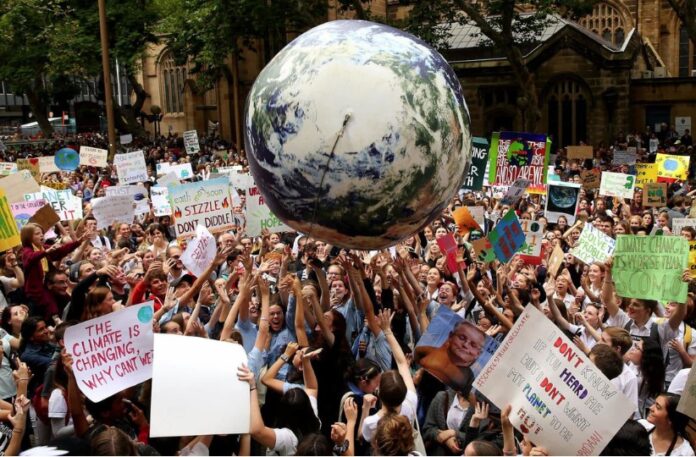When I wrote back in 2012 what follows, I didn’t think I’d still be seeing humanity facing the same challenge a decade later.
What I said then was, “we need to find leaders to provide us with guidance to achieve our common planetary goal. National self-interest cannot continue to impede all of humanity. We are a global society and we need to make global decisions about managing our ecological footprint. That way we can find a sustainable medium for all in the remainder of the 21st century and beyond.”
Have we found leaders in government, business, technology, and science, that can help us navigate the challenges we presently face and that lie ahead? Based on the decade, and our indifferent lack of progress on climate change issues, it appears that there remains a dearth in the type of leaders needed to make the tough and responsible choices.
The planet and humanity need a livable climate future, and our chance of collective success is predicated on actions coming from leaders in governments, industry, academia, and the media.
I recently joined the Citizens’ Climate Lobby (CCL). Its founder, Marshall Saunders, once stated, “I realized that ordinary people like me would have to organize, educate ourselves, give up our hopelessness, and gain the skills to be effective with our governments.”
Saunders had a good idea. If leaders were struggling to address difficult problems, maybe an educated public could help them be more effective. In this way, political leaders could provide acts of courage to use their positions in government to enact policies to tackle such an enormous challenge as climate change.
Today, CCL, which Saunders began in the US in 2007, has grown to have supporters in 185 countries, all advocating for putting a price on carbon pollution as a market mechanism to reduce our collective emissions. CCL meets with legislators, and the media as informative subject experts sharing information and ideas on how to keep global warming in check.
They along with other climate change activists have seen some successes through international forums like the annual COP meetings under the auspices of the United Nations. The progress has been slower than most of us who are environmentalists would like to see. But at the Glasgow COP 26, in November 2021, a number of new initiatives and commitments were announced backed by governments, financial, and business leaders. Here are a few of them:
- The Powering Past Coal Alliance with 48 countries announced its commitment to eliminate coal-fired power plants.
- BOGA, the Beyond Oil and Gas Alliance, is a group of 14 governments (countries and states) committed to phasing out the use of oil and gas.
- AIM4C committed $4 billion to accelerate sustainable agricultural practices in 30 countries.
- Regen 10, a collective action plan to scale regenerative food production systems, worldwide over the next decade, is committed to working with over 500 million farmers.
- The Methane Pledge made by 105 nations pledged to cut emissions of this potent greenhouse gas by 30% by 2030.
- The Ending deforestation initiative committed $19.2 billion to preservation in countries representing 91% of the world’s forest cover.
- The Zero emissions initiative involving more than 100 actors including nations, cities, states, and businesses, is focused on eliminating greenhouse gasses from transportation.
- The Clydebank Shipping Declaration by 19 countries is committed to zero-emission shipping on major marine routes.
- The Glasgow Financial Alliance for Net Zero (GFANZ) with $130 trillion from banks and financial institutions is committed to achieving the 2050 decarbonization goal through changing financial flows.
- VCMII is a voluntary carbon markets initiative aimed at redirecting financial resources to activities that support carbon caps, carbon pricing, and other actions in pursuit of limiting atmospheric warming to COP 21 targets.
- Finance ministers from more than 60 countries agreed to pursue progress in transforming their economies to address mitigating and adapting to climate change.
All of the above are positive steps. But what still is missing are mechanisms for adjudicating global activity on climate change including measuring the performance of nations, and industry sectors. This weakness of the Paris Climate Agreement signed by almost every country in the world at COP 21 is still encumbering progress in combatting global warming.
Countries pledged to reduce carbon emissions but the hard and fast target commitments and measurable milestones have remained largely missing. That’s why since 2015, except for the first year of the COVID-19 pandemic, global greenhouse gas emissions have continued to rise rather than plateau or fall making interim goals for 2030 more elusive. And the 2050 net-zero goal is being ignored by some countries such as China and India who have set 2060 and 2080 respectively to achieve net-zero.
Mia Mottley, the Prime Minister of Barbados, in her speech to the attendees at Glasgow COP 26 put a historical perspective on the lack of action on climate change while pointing to purposeful and decisive actions in other areas affecting the global economy. She stated:
“The central banks of the wealthiest countries engaged in $25 trillion of quantitative easing in the last 13 years…Of that, $9 trillion was in the past 18 months to fight the pandemic. Had we used that $25 trillion to purchase bonds to finance the energy transitions or the transition of how we eat or how we move in transport, we would now, today, be reaching that 1.5 Celsius limit that is so vital to us.”
When the leader of a small island nation points to how misguided our policies continue to be it is an indictment of global leadership.
Today’s world leaders are happy to throw money at the fossil fuel industry in the form of subsidies. They are happy to subsidize big agriculture, forestry, mining, car companies, land developers, and other business players who lobby them and are happy to receive government largesse.
If this money were to be redirected to tackle climate change through sound mitigation and adaptation practices all of us would be the beneficiaries. We are talking about redirecting trillions of dollars that today are going into the wrong hands to finance the degradation of the planet.
So why are our government and financial leaders happy to continue to finance the instruments of our potential extinction, rather than preserve the only inhabitable planet that we know of at present in this Universe?









